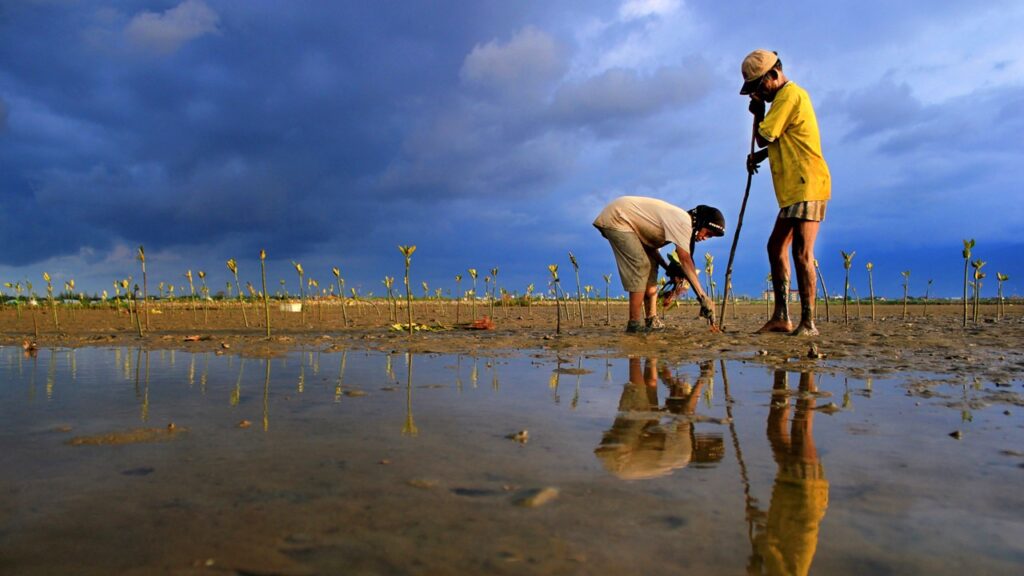Events
Natural Climate Solutions in Southeast Asia: Positioning Local Carbon Transitions within Global Frameworks
| Date | : | 08 May 2025 - 09 May 2025 |
| Venue | : | Hybrid (Online via Zoom & AS8 04-04) |
| Contact Person | : | YEO Ee Lin, Valerie |
| Programme | ||
This workshop is organized by the research project entitled Climate Governance of Nature-based Carbon Sinks in Southeast Asia, funded by Singapore’s Social Science Research Council Thematic Grant (MOE2021-SSRTG-021). For updated information about the project, please visit cgsea.org
Natural Climate Solutions (NCS) are key to international climate policy goals to limit global warming to below two degrees Celsius. Defined as a suite of actions to conserve, sustainably manage and restore natural or modified systems with societal co-benefits (IUCN, 2020), NCS have become integrated into environmental governance regimes across Southeast Asia in partial fulfilment of individual countries’ Nationally Determined Contributions to the 2015 Paris Agreement. Climate change mitigation has become an important reason for protecting, restoring and enhancing ecosystems that are assumed to absorb and store more carbon than they release, otherwise known as natural or nature-based carbon sinks. These include terrestrial and mangrove forests, peatlands, agricultural soils and seagrass meadows, all of which are being transformed by the promise of affordable and scalable NCS. At the same time, growth-driven agendas pose serious challenges for NCS. The great majority of ecosystems in Southeast Asia that are effective carbon sinks are imminently vulnerable to degradation, driven by growing demands for commodities and land to support population growth, industrialization and human settlement.
This interdisciplinary workshop locates the toolbox of NCS policies, actions and arrangements in Southeast Asia within global climate frameworks and agendas. In so doing, it connects international discussions and frameworks about NCS with the diverse policy contexts in which natural carbon sinks in Southeast Asia are placed. Examples of NCS in Southeast Asian settings include: (a) the uptake of paludiculture (wet agriculture) in tropical peatlands, (b) REDD+ initiatives for afforestation, reforestation and community-based agroforestry; and (c) mangrove reforestation. Increasingly, NCS activities and arrangements in Southeast Asia are being tied to carbon markets as carbon sequestration projects convert forests, peatlands and other carbon sinks into currency as high-quality offsets.
Through theoretical contributions and grounded case studies, the workshop will be guided and underpinned by the following questions:
- What, if any, characteristics of NCS involving nature-based carbon sinks in Southeast Asia could be considered novel, and how might any novelty best be accommodated within environmental governance regimes at regional and global scales?
- How and to what effect have international prescriptions for NCS been understood, adapted and applied in Southeast Asian sinks?
- How are NCS challenging and/ or complementing pre-existing regimes for managing Southeast Asia’s peatlands, forests, mangroves, seagrasses and agricultural soils?
- To what extent are NCS in Southeast Asia taking into account local community needs and priorities, and how can it better do so?
WORKSHOP CONVENORS
Dr Michelle MILLER
Asia Research Institute, National University of Singapore
Professor David M. TAYLOR
Department of Geography, National University of Singapore
REGISTRATION
Registration is closed, and registered attendees have been given instructions on participating in this hybrid event. Please write to valerie.yeo@nus.edu.sg if you would like to attend the event.



